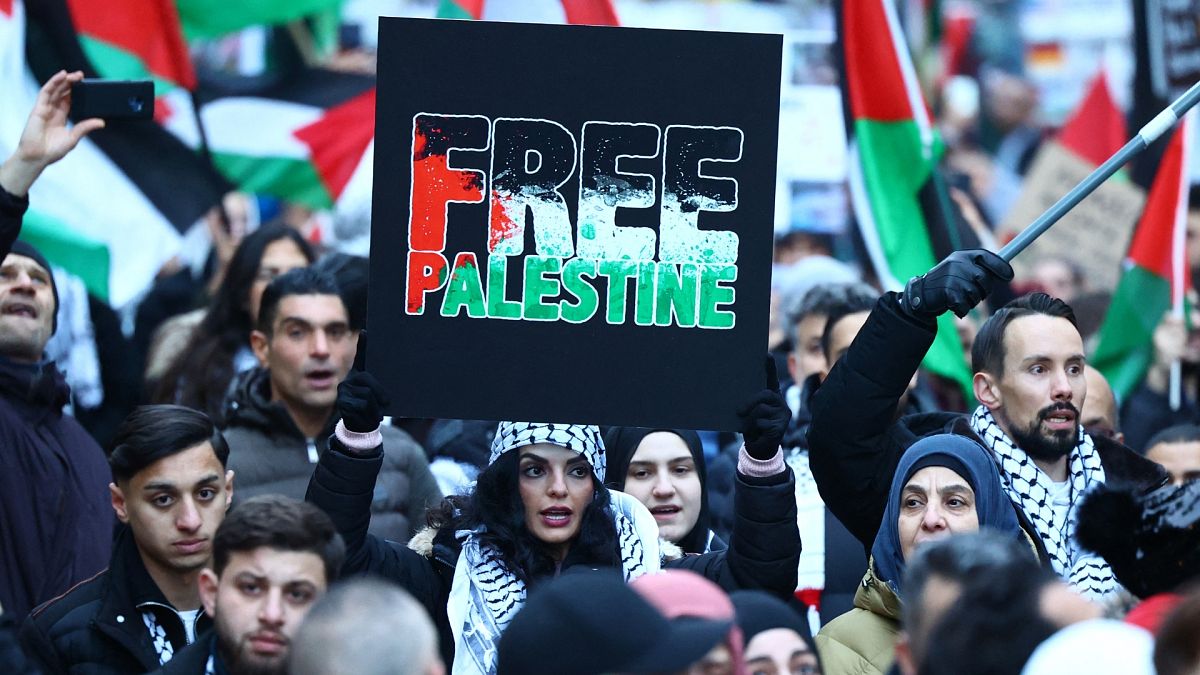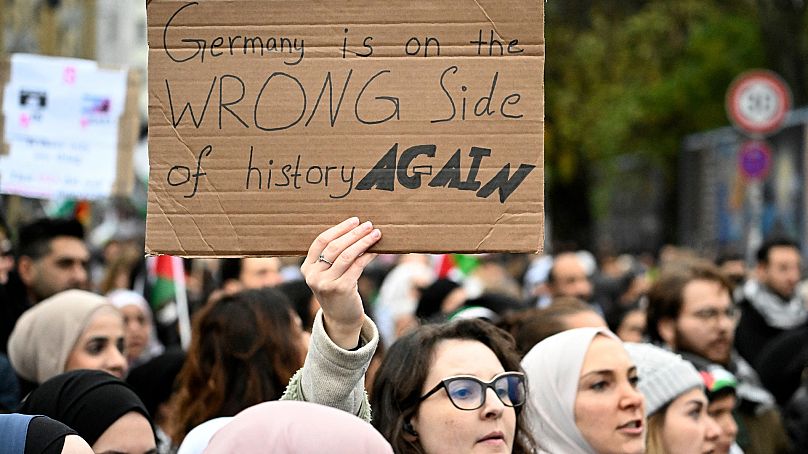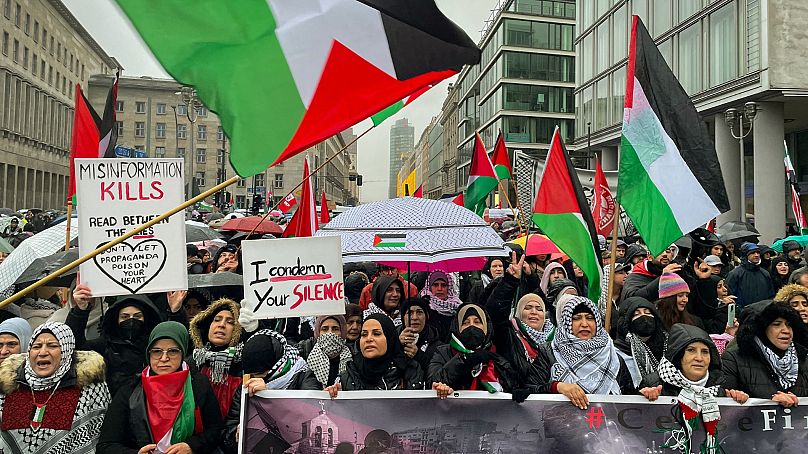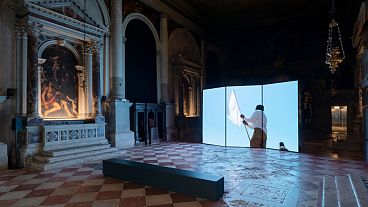Since the 7 October Hamas attacks on Israel, which sparked the current Gaza offensive by the Israel Defense Forces (IDF), pro-Palestine voices in Germany’s culture sector have been silenced.
This November in Berlin, Oyoun, a cultural institution that “conceives, develops and implements artistic-cultural projects through decolonial, queer * feminist and migrant perspectives,” lost its state funding.
The decision is believed to have followed Oyoun running an event for Jewish Voice for a Just Peace in the Middle East, a Jewish-led organisation that has supported the Boycott, Divestment, Sanctions (BDS) movement against Israel. In 2019, Germany’s Bundestag classified the BDS movement as antisemitic.
Oyoun’s funding was set to last until 2025 but the venue will now be left destitute by the end of December this year. It’s not the first cultural institute to face challenges over support for Palestine during a conflict that has seen over 20,000 Palestinians and over 1,200 Israelis killed with over 200 kidnapped in the 7 October assault.
The Frankfurt Book Fair cancelled a prize giving ceremony for Palestinian-born and Berlin-based writer Adania Shibli in October, a decision that Shibli says was not made with her consent.
The German Photography Biennale cancelled its March 2024 tour after the host cities, Mannheim, Ludwigshafen and Heidelberg, took issue with co-curator, Bangladeshi photojournalist Shahidul Alam’s social media content.
Alam had posted antisemitic content, including an “uncommented interview by Shahidul Alam with the Palestinian ambassador to Bangladesh, a comparison of the current war with the Holocaust and accusations of genocide by the state of Israel against the Palestinian population in Gaza. Racist and other comparable comments, e.g. with terrorist imagery directed against the Israeli civilian population (paragliders with weapons),” wrote the Biennale in a statement.
After Alam refused to delete these posts, the Biennale hosts say the “relationship of trust” was damaged. Bangladeshi co-curators, Tanzim Wahab and Munem Wasif, resigned in solidarity and the tour was cancelled.
Alam has since told Al Jazeera that “I am an anti-Zionist which means I am against colonialism, settler colonialism, against racism, against apartheid and genocide.” He notes he is “not an anti-Semite, and it’s most unfortunate that Germany chooses to conflate the two, [as this] serves and furthers the white supremacist agenda.”
A similar situation played out for Haitian-born writer, professor, and curator Anaïs Duplan when his collaboration with the Museum Folkwang in Essen was suspended following their social media posts in support of BDS.
The museum cancelled the 24 November show and explained: “This decision was made neither for artistic-curatorial reasons nor because of the exhibition’s theme, but solely because the curator personally takes sides with the BDS campaign, which questions Israel’s right to exist.”
The Berlin government has also banned Palestinian flags and kaffiyeh scarves from schools. Alongside the moves from prominent cultural institutions, there has been little room in Germany for open discussion of the conflict that promotes the voices of Palestinians representing those suffering a humanitarian crisis in Gaza.
Berlin-based Jewish writer Deborah Feldman spoke to The Hill about the difficulty of discussing Israel-Palestine with Germans. “Germans tend to cut off any attempt at constructive conversation with the much-favoured phrase that that topic is ‘much too complicated’.”
Over 100 Jews in Germany's culture sector signed a petition to condemn how Germany has dealt with pro-Palestinian expression.
It’s no surprise, given Germany’s longstanding attempt to rectify past atrocities against Jewish people, that the country would take a staunch pro-Israel view.
“Germans defending the restrictions note that the country has a less permissive stance on free speech than many democracies for subjects beyond Israel, a legacy of World War II and how the Nazis exploited the democratic process to seize power," writes Erika Solomon for the New York Times. "Holocaust denial is illegal, for example, as are slogans that directly avow National Socialism.”
However, treating the – increasingly internationally recognised as inhumane – actions of the IDF as sacrosanct is not the same as fighting antisemitism.
A blanket ban on artistic voices concerned about the treatment of Palestinian people caught in the current violence isn’t just unhealthy for a culture sector, it’s fundamentally undemocratic.





